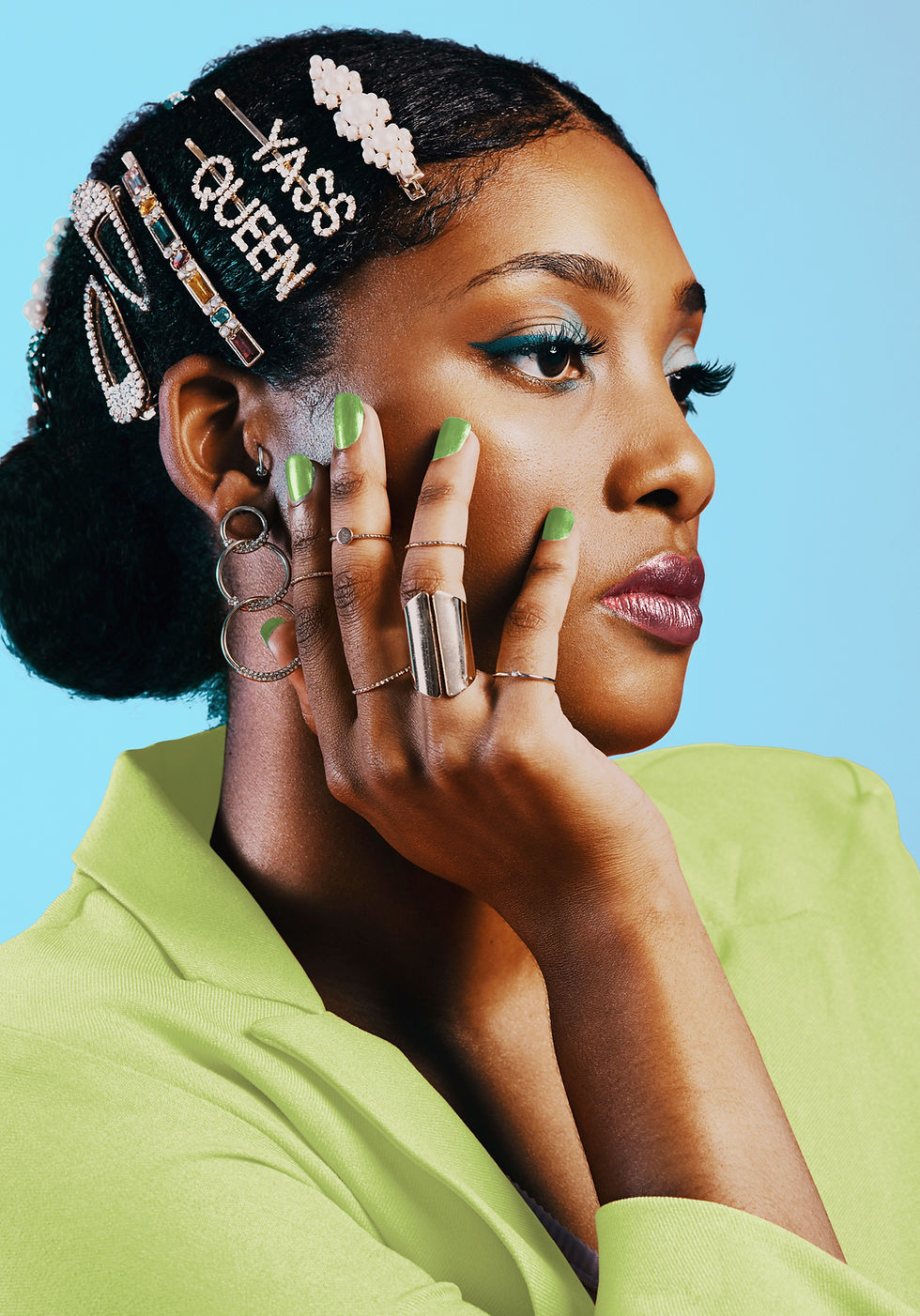Beauty is Pain...
- Natasha Parker

- Oct 18, 2023
- 2 min read
Before natural hair became a trend and women started spending up to 12 hours on their 6-step hair routines, many opted for the "easy" option of relaxed hair. Throughout history, there has been a complex relationship between black women and their natural hair. Society often dictates that it's unprofessional, while beauty standards have led some to believe bone-straight hair is the only way to be considered beautiful.
Black women are often admired for their ability to style their hair in any way they desire, including braids, locs, afros, and everything in between. However, these desired forms of self-expression often come with a price of major damage. Many black women can still recall the scent of the hot comb coming in contact with the globs of grease that we put in our hair, sometimes causing our hair to burn and sizzle, leaving a lasting impact on our hair health.

Although the smell of burning hair is unpleasant, it pales in comparison to the damage that a poorly done relaxer can do to your scalp and hair. If you're unfamiliar with what a relaxer is, it's a type of lotion or cream that is commonly used by people with tight or very curly hair to make it easier to straighten by chemically "relaxing" the natural curls. The active agent is typically a strong alkali, although some formulations use ammonium thioglycolate or formaldehyde. In simpler terms, relaxers are chemicals that can be applied to your hair to modify its natural pattern, but they can also cause chemical burns and hair loss if not used correctly.
After years of chemically altering our natural hair, it is becoming clear that the consequences may be more serious than just scalp burns. The use of relaxers, particularly among black women, has been linked to uterine cancer. After nearly seven decades, the FDA has proposed a ban on formaldehyde, one of the main ingredients in relaxers. Formaldehyde is a colorless, highly toxic, and flammable gas that can cause irritation of the eyes, nose, and throat even at low levels for short periods. Longer exposure or higher doses can lead to coughing or choking, while severe exposure can cause death from throat swelling or chemical burns to the lungs.

It is a known fact that Black women have been disproportionately affected by the harmful effects of using hair relaxers. Despite the FDA's knowledge that the use of formaldehyde in these products is toxic to people, they have only recently taken charge and demanded that this chemical be banned.
Do you think that the ban will actually go into effect? Also, if the chemical is not banned, would you still consider using relaxers?





Comments